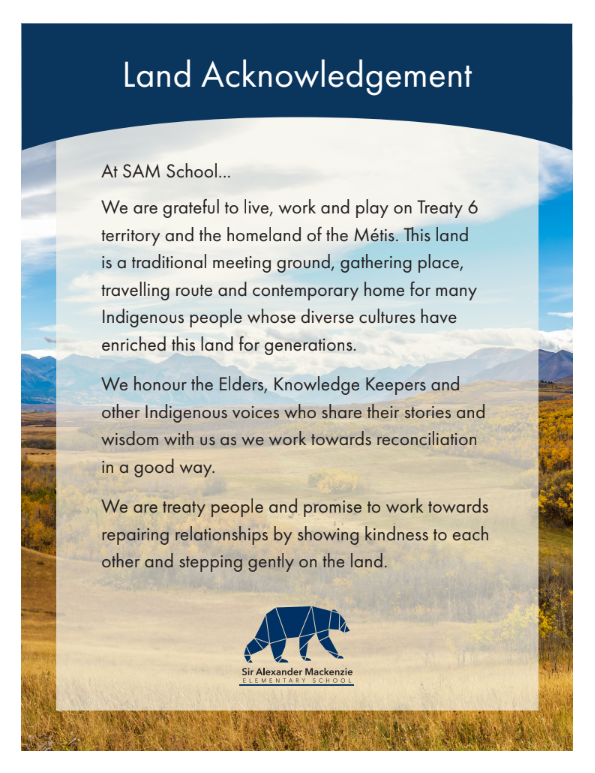
At SAM School, our objectives and key strategies are focused on creating more equitable and inclusive experiences for our students and families. Central to this commitment is our engagement in school-wide projects that help us cultivate a school environment which celebrates our diversity and interconnectedness.
Through our learning and unlearning alongside experts like Dr. Dustin Louie, Dr. Dwayne Donald and Etienna Moostos-Lafferty, the SAM staff is embracing the dynamic nature of our commitment to reconciliation, equity, and inclusion. The knowledge and perspectives of Dustin, Dwayne, and Etienna continue to be crucial in shaping our pedagogical approaches and assessments through an equity lens.
This learning has led us to renew our school’s Land Acknowledgement. The process of renewing our Land Acknowledgement went beyond mere linguistic changes; it was a deep and meaningful exploration of our values and the claims we make to our school community. Our renewed Land Acknowledgement reminds us of our daily commitment to live in a good way, which respects and honours the diversity of relationships, stories, and wisdom in our community.
At the beginning of this school year, we use our renewed Land Acknowledgement to form learning commitments throughout our school. Together our staff used the claims in our Land Acknowledgement as the foundation upon which we co-constructed our commitments to each other. These commitments are short actionable statements that remind us what it looks like for each of us to come together to live, work, and play on this land in a good way. Our teachers then replicated the co-construction process within their classrooms to create their own classroom commitment statements as daily reminders of the responsibilities our students have to nurture each other.
As we renewed our commitments towards each other, we have been understanding differently the ways that we can teach and learn with each other. What counts as learning? How do we help each other show up in good ways for learning? And who decides how to learn? These are some of the questions we have started to ask ourselves through decolonizing projects and through our wider work.
